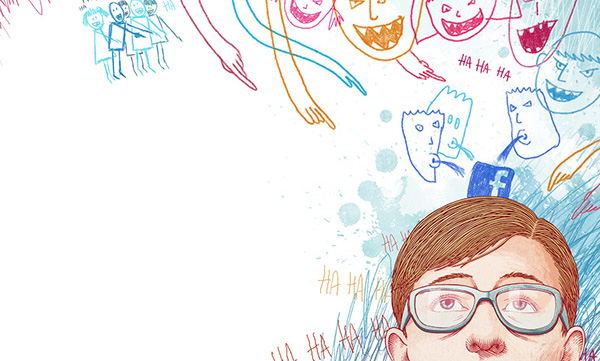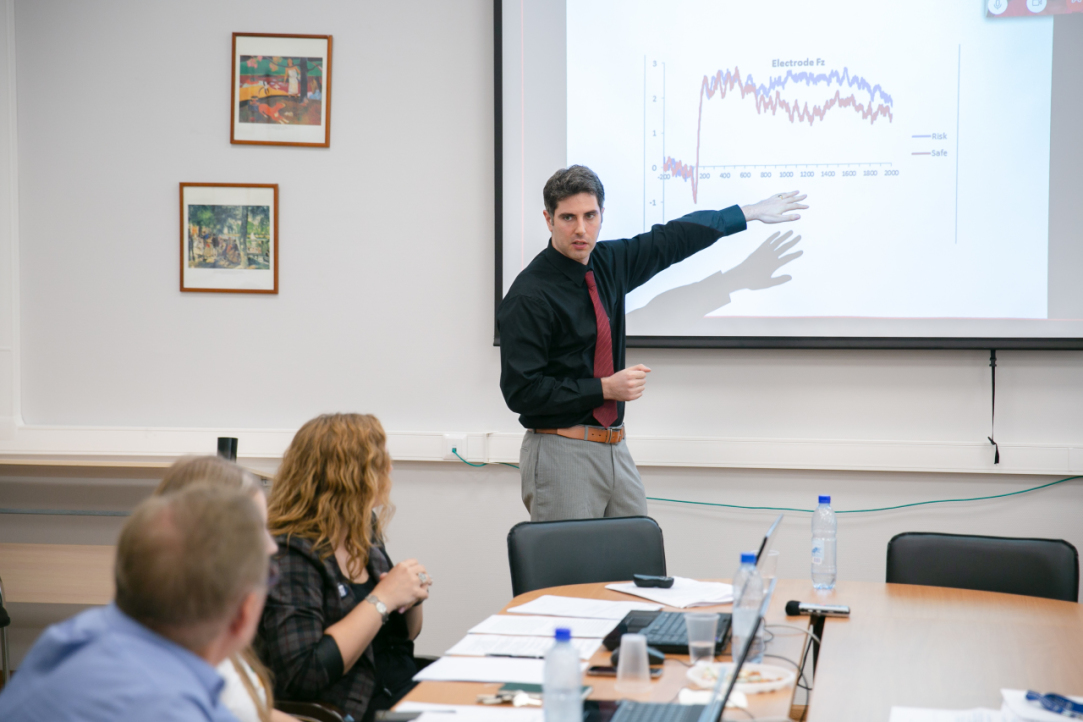.jpg)
A Disadvantaged Start: How Childhood Poverty Affects Self-confidence in Adulthood
In 2017, 30% of Russian families with children under three and almost 20% of families with children under 18 were living below the poverty line. Incidentally, financial hardships experienced during childhood do not leave one unaffected. A study by an HSE psychologist shows that poverty experienced in childhood reduces self-esteem and self-assurance even in adults who later achieve financial success.

Emotions Help Engage School Students in Learning
Psychology researchers from HSE University have trialed the reliability of a student engagement scale on 537 Russian primary school students. The findings indicated that the emotional component contributes the most to school engagement. The paper has been published in PLOS ONE journal.

An Everyday Evil: The Spread of Adolescent Cyberbullying
Cyberbullying is a fact of life for many teens today. Psychologists have found that with age, people become inured to acts of aggression. However, cyber harassment is one of the most dangerous forms of bullying. Cyberbullying victims have nowhere to hide, while their parents often have no idea that something bad is happening to their kids, since the bullying occurs in adolescent online communities. Researchers studied cyberbullying among teenagers.

Defending Personal Boundaries: How Birth Order Affects Children’s Psychological Sovereignty
HSE psychologists have studied how the presence or absence of siblings, as well as birth order, affect children’s ability to maintainpersonal boundaries. The results showed that only children and second-born children have the strongest sense of personal boundaries, while first-born children have the least. However, as children become adults, their ability to balance between their own needs and those of others becomes determined more by gender.

'Going to HSE Seemed Like a Great Way to Pursue My Interests’
September 4, 2019 was a day of firsts for the School of Psychology and the Centre for Cognition and Decision Making. Zachary Yaple, who was born in the United States and grew up in England, defended his dissertation, 'Neurophysiological Correlates of Risky Decision-Making'. His defense marked the first PhD to be prepared at the Centre for Cognition and Decision Making and the first PhD to be awarded to an international student by the Doctoral School of Psychology.

The Brain Processes Words Placed on the Right Side of a Screen More Quickly
When reading words on a screen, the human brain comprehends words placed on the right side of the screen faster. The total amount of presented information on the screen also affects the speed and accuracy of the brain’s ability to process words. These are the findings of HSE researchers Elena Gorbunova and Maria Falikman presented in an article that was published in the journal, Advances in Cognitive Psychology.

The Campaign Against Bullying
Educators do not always deal with student aggression in the most effective manner. Sometimes teachers resort to severe and unsystematic methods that only make the bullying worse. According to researchers of the HSE Laboratory for Prevention of Asocial Behavior, the problem requires a comprehensive approach: aggression prevention programmes need to be incorporated into educational policy, and, in turn, schools need to foster supportive psychological climate and trust between teachers and students.

Work That Kills: The Danger of Nonstandard Working Schedules
More than 64% of employed Russians work evenings, nights or weekends, and this is one of the highest figures among European countries. Andrei Shevchuk and Anna Krasilnikova were the first to study the extent of nonstandard working hours in Russia and its impact on work-life balance.

HSE Scholars Propose New Method for Measuring Individual Well-being
Their initial tests were carried out with football fans, by measuring their emotional state. It turned out that, on average, uncertainty about a match result can increase the probability of unhappiness by 13.6%. The results of this study were published in the Journal of Happiness Studies.

Emotions from Touch: What Textures Bring Happiness, and What Cause Anger
Touching different types of surfaces may incur certain emotions. This was the conclusion made by psychologists in a recent empirical study. Previously, emotional perception was generally studied in relation to visual and audial modalities.

